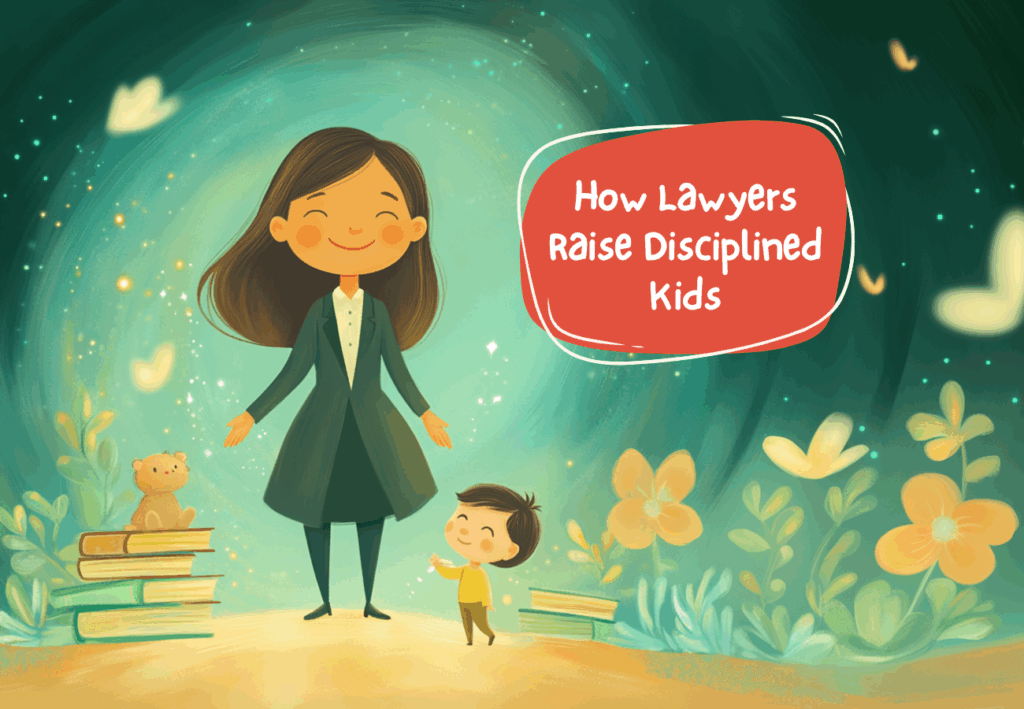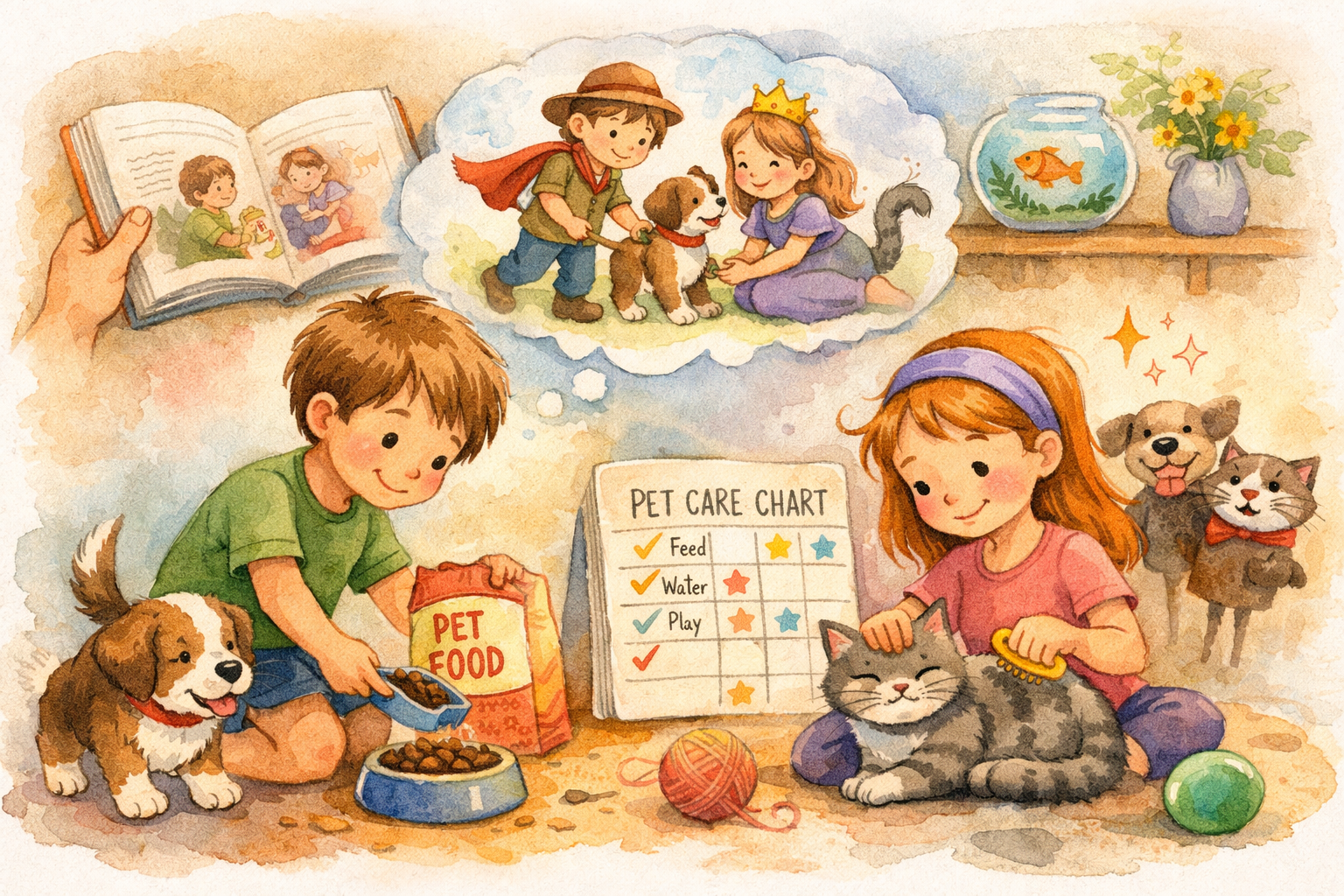How Lawyers Raise Disciplined Kids By Focusing on Logic, Not Fear

Lawyers spend their careers mastering logic, reasoning, and persuasive communication skills that often seep into how they parent. Most of us can imagine that practicing law is already quite intensive. However, when combined with raising kids, it can be overwhelming.
In a survey of over 8,000 lawyers, it was found that 60% of working mothers felt like they were penalized for becoming mothers. This data came from the 2023 American Bar Association report. When you live in a tug-of-war life with work and home pulling from either end, raising kids with the right values can get messy.
Moreover, behavioral issues in kids are not as uncommon as you would think, and sometimes, they may actually be linked with certain mental health disorders. No parent likes to hear it, but according to the CDC, 21% of children between the ages of 3 and 17 are diagnosed with a mental, emotional, or behavioral condition.
As a lawyer and as a parent of developing children, how do you ensure that you raise disciplined kids? How do you ensure that you don’t go the easy route of fear-based parenting and blind obedience? Let’s find out in this article.
Learn From The Legal Mindset Where Discipline is Rooted in Structure and Consequence
Lawyers are wired to think in terms of systems, rules, and outcomes. Surprisingly, this same framework can work great in parenting. Rather than relying on arbitrary punishments, you can set clear expectations and consistent consequences, much like a legal system operates.
If bedtime is at 8:30 PM, then lights out is enforced every night, not just when the parent isn’t tired. If a child breaks a rule, the “penalty” is proportional, predictable, and explained ahead of time.
This approach gives children a strong sense of security because they understand the boundaries and know what to expect. It also eliminates the power struggle that often comes with emotionally charged discipline.
Instead of “Because I said so,” it’s more like, “You knew the rule, and this was the consequence we agreed on.” Over time, this teaches kids not only to follow rules but also to internalize the logic behind them, which is the foundation of self-discipline.
Model Self-Discipline and Respect for Rules While Fostering Independent Thinking
The most powerful lessons are the ones kids observe, not just the ones they’re told. Lawyer-parents often model the very discipline they expect, such as structured routines, meeting deadlines, and showing respect for boundaries.
This behavior becomes the unspoken standard in the household. Kids don’t just hear about the importance of order because they actively live in it. But what’s especially important is that this respect for rules is balanced by a willingness to challenge flawed systems.
Many lawyers have seen firsthand the dangers that come with blind belief. They’ve seen it affecting other parents when working on cases related to the whole NEC lawsuit drama (necrotizing enterocolitis). Those unfortunate parents were told that the baby formula they fed their infants was perfectly safe for infants, and they believed it.
Then, they find out later about the potentially fatal disease that their infant developed and are devastated. You might think these are only a few, rare cases of negligence, but as TorHoerman Law notes, there are over 700 pending lawsuits.
These legal actions show kids that following rules doesn’t mean being passive and gullible. Instead, it means understanding the system well enough to recognize and call out something wrong and ask more questions when needed.
This reinforces a critical life lesson: real discipline isn’t about compliance but about informed decision-making and the courage to stand up for what’s right. This is a nuance that fear-based parenting often misses entirely.
Remember That Developing Critical Thinking Should Start From an Early Age
One of the most striking things about lawyer parents is that they feel more comfortable treating even young children like capable thinkers. After all, when you work in an environment where that’s what happens 24/7, it just comes naturally to you.
However, when dealing with young kids, you need a little extra patience, and modeling is a great way to stimulate critical thinking. You can model such behavior when your kid asks you hard-to-answer questions.
As Dr. Wendy Mogel, psychologist and author, explains, we tend to believe that we have to think on our feet when dealing with kids. That we have to have an immediate answer and the ability to reach a consensus with a 4-year-old.
However, modeling critical thinking by using phrases like “I need to think about that” introduces the idea that we ought to think before we speak.
Likewise, a child caught lying might hear, “Why do you think telling the truth matters?” instead of a simple scolding. This Socratic-style engagement pushes kids to develop their own sense of ethics and responsibility, rather than just following rules to avoid punishment.
It’s a subtle shift, but a powerful one: fear-based discipline conditions kids to be reactive, while logic-based discipline trains them to think. This doesn’t mean lawyer-parents are permissive or overly lenient. They’re still firm, but their strength lies in guiding kids to understand cause and effect, actions, and consequences.
Over time, these children learn to pause, evaluate situations, and make better decisions. They do so not because they’re afraid of getting in trouble, but because they understand what’s right and what’s wise. That’s a mindset that serves them long after childhood.
Opt for Communication Over Commands and Threats
Lawyers are trained communicators, and it shows in how they handle discipline. Instead of resorting to raised voices or vague threats, they often use calm, clear dialogue to correct behavior. You can integrate good communication skills with your kids as well, and this becomes relevant when dealing with older kids.
According to pediatrician Edward Gaydos, active listening becomes particularly important during the teenage period. This is because teens who feel like they can confide in a parent are less likely to hide their problems. Ironically, it is the secrecy around mistakes and problems that ends up magnifying them later on.
This doesn’t mean the conversations have to be long-winded debates. You will need to know when to end a discussion, but even in brief interactions, you can explain the “why” behind a rule. “You don’t go to those parties because they are dangerous and have a lot of bad influences” is far more effective than “Go to that party and you’re grounded.”
Over time, this builds mutual respect. The child learns that they’re not just being ordered around. They also learn that words matter. In the same way that a well-argued case can win over a jury, a respectful tone and reasoned approach can win cooperation from a child.
And importantly, this form of discipline helps kids develop their own communication skills. They learn how to express disagreement calmly, how to listen, and how to explain themselves without fear of being shut down.
Frequently Asked Questions
1. What is the best way to discipline a child?
The best way to discipline a child is by staying calm, setting clear rules, and following through. Focus on teaching, not punishing. When kids understand why something’s wrong and what to do instead, they’re more likely to listen and learn from it.
2. What are the 5 C’s of discipline?
The 5 C’s are Clarity, Consistency, Consequences, Calmness, and Connection. Basically, make rules clear, stick to them, stay calm, use fair consequences, and keep a strong relationship. When all five are in place, kids feel safe and respected and know what’s expected of them.
3. Is fear a good way to discipline a child?
No, using fear might get quick results, but it backfires long-term. It can hurt your child’s confidence and damage trust. Instead of fear, discipline should be about guidance, boundaries, and support. Kids listen better when they feel safe, not scared.
All in all, raising disciplined kids doesn’t have to mean raising fearful ones. Lawyers offer a compelling model for how logic, structure, and communication can replace shouting, punishment, or threats. Who would have thought that setting clear expectations and modeling integrity is a good idea? Raise your kids in this manner, and they’ll be resilient and grounded as adults.
More articles

The Best ADHD Books for Kids: Supportive Reads for Children and Parents
Supporting a child with Attention-Deficit/Hyperactivity Disorder (ADHD) starts with understanding their world—how they think, feel, and navigate daily challenges. One of the most effective tools for building empathy, resilience, and confidence is reading. The right ADHD books for kids help children feel seen, understood, and empowered. At the same time, high-quality books for parents of […]

Kid-Friendly Ways to Learn Responsibility Through Storytelling and Pets
Teaching responsibility to children can sometimes feel like herding cats – adorable, unpredictable, and a little exhausting. One day they’re eager to help, the next they’ve completely forgotten what they promised to do. The good news? Responsibility doesn’t have to be forced or boring. When you mix the power of storytelling with the real-life experience […]

The Best Spanish Books for Kids: Fun and Engaging Books
Introducing children to a second language early opens the door to stronger communication skills, cultural understanding, and long-term academic benefits. Whether you’re a teacher, parent, or bilingual family, choosing the right Spanish books for kids is one of the most effective and enjoyable ways to support language learning. High-quality books in Spanish for kids build […]



